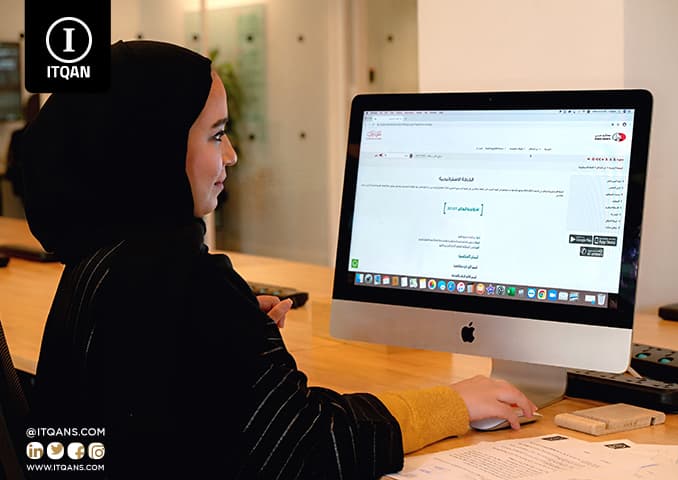Dubai’s free zones are considered one of the most prominent investment destinations for companies and investors from all over the world, thanks to the stimulating business environment and unique competitive advantages they provide. Establishing a company in a free zone in Dubai represents a golden opportunity for investors who want to benefit from great economic and financial incentives and facilities that contribute to accelerating the process of establishing a company in the Dubai free zone.
Dubai’s free zones offer a wide range of benefits that make them a preferred destination for establishing companies, including full tax exemptions on profits, facilitation of licensing procedures, and full ownership of companies by foreign investors, without the need for a local partner. These advantages make establishing a company in free zones a strategic choice for investors looking for a flexible work environment that supports innovation and growth.
Dubai’s free zones are diverse to cater to various business activities, such as the Dubai International Financial Center (DIFC), which focuses on the financial sector, Dubai Media City, which targets media and technology companies, and Dubai Silicon Oasis, which focuses on technology and innovation. Each free zone provides customized services and support to investors, facilitating the establishment and business management processes.
In addition, Dubai provides an advanced infrastructure of advanced transportation networks, integrated logistical facilities, and global banking services, which enhances the effectiveness of commercial operations and contributes to achieving investment goals. If you are looking to start a business in a global environment full of opportunities, establishing a company in a free zone in Dubai is a strategic step towards success and growth.

جدول المحتوى
ToggleDubai Free Zone
Dubai Free Zone is one of the most prominent investment destinations in the world, offering a set of unique advantages that make it a preferred choice for companies and investors. These areas are characterized by a dynamic and flexible business environment that supports growth and innovation, and provides a variety of options that suit various business activities. The most prominent free zones in Dubai include the Dubai International Financial Center (DIFC), Dubai Media City and Dubai Industrial City, each offering special benefits in line with the needs of companies in different sectors.
Dubai’s free zones are characterized by providing full foreign ownership, which means that investors can establish and manage their companies without the need for a local partner, which is considered a huge advantage, especially for international investors. Companies also benefit from comprehensive tax breaks, including no taxes on profits or personal income, which enhances business profitability and reduces operational costs. In addition, free zones offer customs facilities and simplified registration procedures, which contribute to accelerating the establishment process and reducing bureaucracy.
Dubai also has a developed infrastructure that includes modern business centers and advanced logistics facilities, which contributes to facilitating business operations. The political and economic stability in the UAE also enhances the attractiveness of free zones as a safe and stable center for investment. Thanks to all these advantages, Dubai’s free zones remain a preferred strategic destination for international investors looking to expand into a thriving global market.
Basic steps to establish a company in the free zone
Establishing a company in a free zone in Dubai requires following specific steps to ensure compliance with legal and procedural requirements. Here are the basic steps to establish a company in the free zone:
- Determine the business: Determine the type of business you wish to engage in. Choose the activity based on your business plan and make sure it is permitted in the free zone where you intend to establish the company.
- Choose a free zone: Choose the free zone that suits your business. Each free zone offers different types of activities and offers various benefits, so you should choose the one that meets your business needs.
- Determine the company’s legal structure: Choose the appropriate legal structure for your company, such as a limited liability company (LLC), a partnership, or a branch of an existing company. The legal structure will affect your legal and financial obligations.
- Submitting a registration application: Submit a registration application to the selected free zone authority. You will need to provide required documents such as passports, address proofs, and CVs of the founders and directors.
- Choosing a Company Name: Choose a name for your company according to local requirements and laws. Make sure the name is not previously used and is in line with the regulations imposed by the free zone.
- Preparing legal documents: Prepare the necessary legal documents, including the company’s articles of association and articles of association. These documents will define the company’s structure, objectives and management system.
- Payment of fees: Payment of the fees prescribed for establishing the company, which includes registration fees, licensing, and any additional fees that may be required by the free zone.
- Obtaining a license: After submitting the application and paying the fees, the Free Zone Authority will issue the license for your company. A license is the official document that allows you to operate your business.
- Office rental: Rent an office in the free zone or use virtual office services if available. Companies in free zones usually have to have an address
- registered.
- Open a bank account: Open a bank account for your company in one of the approved banks. You will need to provide required documents such as license, articles of incorporation, and passports for the founders.
- Registration in government departments: Register your company with local government agencies if necessary, such as the Department of Economic Development (DED) or any other regulatory bodies depending on your activity.
- Obtaining work visas: Apply for work visas for founders, directors and employees if the company will employ individuals from outside the UAE.
- Compliance with other requirements: Ensure compliance with any additional requirements the free zone may impose, such as tax registration or insurances.
Documents required to establish a company in the free zone
To establish a company in a free zone in Dubai , you will need to submit a set of basic documents. Documentation varies slightly based on the type of business and specific location in the free zone, but in general, it includes the following:
- Passports: Colored and clear copies of the passports of all founders, directors and shareholders. Passports must be valid.
- Proof of Address: Documents proving the current residential address of founders and directors, such as utility bills (electricity, water, or gas) or statements from the bank.
- CVs: Recent CVs of founders and directors, including details about their professional backgrounds and work experiences.
- Registration form: The company’s registration form, which is filled out and submitted to the Free Zone Authority. The form includes information about the business activity, legal structure, and names of founders.
- Business Plan: In some cases, a business plan may be required that details the business and future plans, including the company’s goals and strategies.
- Memorandum of Association and Articles of Association: Legal documents that include the Memorandum of Association and Articles of Association of the company. These documents define the company’s structure, objectives, and management system.
- Choosing a company name: A list of suggested names for the company, specifying the final name you wish to register. The name must comply with local requirements and laws.
- Office Rental: Evidence of renting an office in the free zone or using virtual office services. May require submission of lease or proof of office location.
- Certificates of good standing: Some free zones may require the submission of certificates of good standing for founders and directors. These certificates can be obtained from the local authorities in the home country.
- Proofs of payment: Proofs of payment of the fees required to register the company and obtain a license. These fees include registration fees, licensing, and any additional fees that may be required.
- Additional documents: Depending on the type of business activity and free zone requirements, additional documents may be required such as licenses for specialized activities or industrial licenses.
Fees associated with establishing a company in the free zone
The fees associated with establishing a company in the Dubai Free Zone vary based on several factors, including the type of company, its activity, and the requirements of the specific free zone. But an overview of the main fees you may face can be provided:
- Registration fees: Includes the fees for submitting an application to register the company with the Free Zone Authority. This fee is paid upon submission of initial documents.
- License fees: Includes the fees necessary to obtain a commercial or industrial license that authorizes you to practice commercial activity in the free zone. Fees depend on the type of activity and the size of the company.
- Office fees: Includes office rental fees in the free zone, which may include annual rent for a physical office or a virtual office. These fees vary based on office size and location.
- Incorporation fees: Fees related to establishing the company, including preparing and documenting the articles of association and articles of association. It may also include legal costs related to preparing documents.
- Additional services fees: These may include fees related to additional services such as printing, translation, or legalization. These fees depend on the services requested.
- Renewal fees: Includes fees for renewing the license and the company’s annual contract. You are required to renew the license annually or according to the schedule determined by the free zone.
- Recruitment fees: If the company will be hiring employees, you may need to pay additional fees for work visas and residence permits.
- Other Fees: Other fees may include any additional costs related to obtaining special licenses, verifying certifications, or any other business-specific requirements.

The main advantages of establishing a company in a free zone in Dubai
Establishing a company in a free zone in Dubai offers many advantages that make it an attractive destination for investors and entrepreneurs. Here are the main advantages of establishing a company in a free zone in Dubai:
- Tax exemptions: Most free zones in Dubai offer comprehensive tax exemptions, including not imposing income tax on companies and individuals, which reduces the tax burden and helps increase profitability.
- Full foreign ownership: Free zones allow foreign investors to own 100% of the company’s shares, without the need for a local partner, which provides full control over the company and strategic decision-making.
- No restrictions on money transfer: Companies in free zones can transfer profits, salaries and other funds without restrictions, making it easier to manage and flow money freely between countries.
- Benefiting from advanced infrastructure: Free zones provide high-quality infrastructure that includes offices, warehouses, and logistical facilities, which contributes to facilitating business operations and improving efficiency.
- Simplified bureaucratic procedures: Free zones feature simplified and quick registration and establishment procedures, which saves time and facilitates the process of starting a business.
- Providing commercial facilities and equipment: Free zones provide facilities that include office furniture, computers, communications, and support services, which reduces the need for a large initial investment in these equipment.
- Incentives for employment and training: Free zones may provide training and development programs, and incentives to employ Emirati citizens, which enhances the development of human resources in the company.
- Access to new markets: Free zones allow investors to access new markets in the Middle East and North Africa region, and help expand business and develop growth opportunities.
- Multiple activity licenses: Many free zones allow the establishment of companies with multiple activities under a single license, allowing for diversity in business activities and the ability to meet diverse market needs.
- Intellectual property protection: Free zones provide effective measures to protect intellectual property, which enhances the legal security of innovations, trademarks and inventions.
In conclusion of the discussion about establishing a company in the Dubai Free Zone, it is clear that Dubai provides an ideal investment environment that supports the establishment of companies and enhances the opportunities for success and growth in the global market. Thanks to the many advantages offered by free zones, investors can benefit from many benefits that include full ownership of the company, tax exemptions, and customs facilities that contribute to reducing costs and enhancing profitability.
Dubai’s free zones are excellent starting points for businesses, offering advanced infrastructure, integrated support services, and simplified registration procedures. By choosing the appropriate free zone and meeting the legal and procedural requirements, investors can access a large market enhanced with broad business opportunities, providing them with greater ability to expand and expand into multiple areas.
Moreover, Dubai’s political and economic stability contributes to providing a safe and stable environment, which enhances investor confidence and motivates them to take bold steps towards achieving their business goals. The availability of government support programs and initiatives to encourage innovation enhances competitiveness and provides additional incentives for emerging companies.
The most important frequently asked questions about establishing a company in the Dubai Free Zone
Can an offshore company be converted into a local company?
Converting an offshore company to a local company can be complex and depends on local regulations and laws. It usually requires a formal application and legal procedures that may include modifying the legal form of the company and changing its location.
What are the legal procedures for dissolving an offshore company?
An offshore company can be dissolved voluntarily by submitting an application to the relevant regulator, and settling all financial and legal liabilities.
What are the tax advantages for offshore companies in Dubai?
Offshore companies are usually exempt from taxes on income and profits. You may also benefit from other tax breaks in accordance with applicable international agreements.
What are the potential risks of establishing an offshore company in Dubai?
Changes in laws and policies may affect the operations of offshore companies. Compliance: Offshore companies may face challenges in complying with international legal and tax requirements.
Can individuals from certain countries establish offshore companies in Dubai?
In most cases, individuals from most countries can establish offshore companies in Dubai, but there may be additional restrictions or requirements for some nationalities based on applicable policies.


















